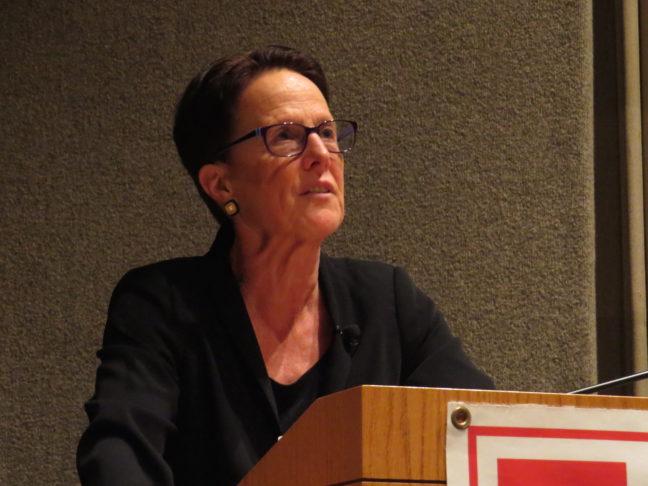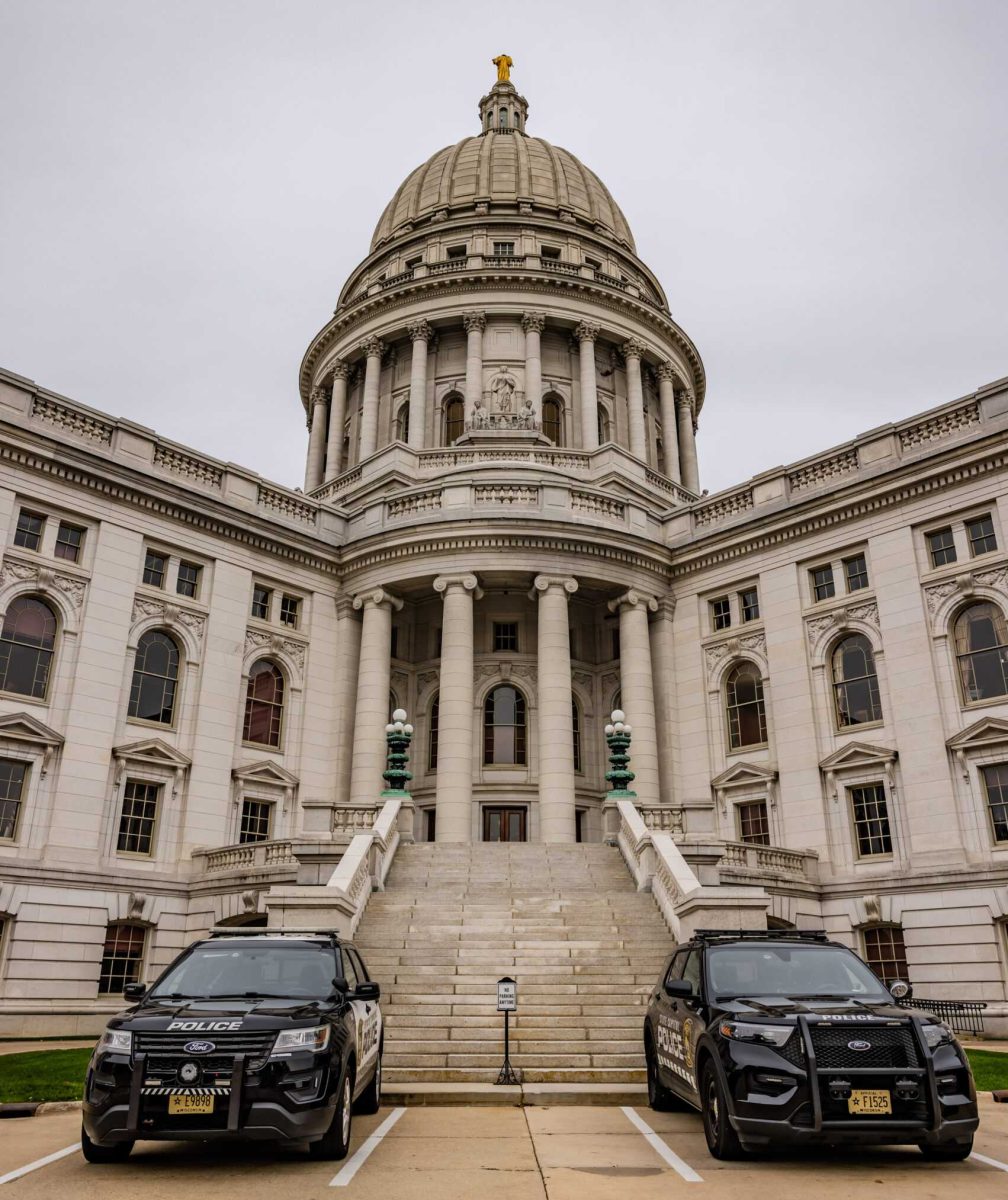Nearly four months after the election, questions still linger in the minds of many about how President Donald Trump won.
To help answer some of these questions, Wendy Brown, a political science professor from the University of California, Berkeley, explored the political and social factors that led to the outcome of the recent presidential election in a lecture titled “Neoliberalism, Authoritarianism, Fascism: Where are We and How Did We Get Here?”
As part of a string of events hosted by the University of Wisconsin Center for the Humanities, members of the Madison community packed into a lecture hall to hear Brown’s assessment of “Trumpism” and how Americans rallied around the controversial new president.
“What I want to think about is the fact that as long as we continue to have the shell of an electoral democracy, what we need to fathom is how about one quarter of the American citizenry were brought to Trumpism and brought us Trumpism,” Brown said.
Though voters had a variety of reasons for electing Trump, including the rising cost of health care, declining living standards and opposition to former presidential candidate Hillary Clinton, Brown said other political influences were also a factor.
Brown called one of the major influences on today’s politics a type of “Frankenstein” neoliberalism, a political reasoning that adopts the favoring of markets over politics in policy making, but takes it one step farther to combine political and economic influences.
The majority of Trump supporters included uneducated working and lower-middle class white citizens over the age of 35, especially men, Brown said. On the other hand, nearly a quarter of all Trump voters said in exit polls they did not think he was qualified to be president compared to Clinton.

“What I think these figures suggest is that we’re not dealing mainly with the politically abandoned, working and lower-middle classes, as we’re so often told,” Brown said. “We are dealing with dethroned whites, especially white men who may or may not have lost earning power, but have lost social power and pride of place.”
Four distinct historical developments brought about this change.
Neoliberalism legislation “gutted” benefits and social mobility for middle and working class citizens for decades, Brown said. Financial chaos like the housing market crash shifted economic wealth upward.
Globalization also contributed to the decline of mass manufacturing, Brown said. People perceived the liberal political agenda as promoting historically excluded people.
UW students walk out of class in opposition to Trump’s inauguration
Two-thirds of Trump supporters believe white people are not getting what they deserve, though Brown said people of color have suffered greater declines.
Trump’s demeanor and campaign drew on the “demonized threat” of minorities and fed into a “yearning” for three main factors: protection, political disruption and solutions.
Brown said Clinton’s message of working to build an already great America “underscored” the majority of Trump supporters’ sense of being dethroned by the new groups and new professions, cosmopolitanism, multiculturalism and finance — all of which left them feeling “left behind” and “like garbage.”
“Obviously there is a ferocious eruption today of right-wing, xenophobic, nationalist, populism throughout the Euro-Atlantic and beyond,” Brown said. “We could depict it as … the furious death rattle of white male rule and entitlement.”
Neoliberalism cast markets and their needs as the legitimate basis for state policy in today’s political climate, Brown said. The simultaneous erosion of democratic values left a space for authoritarian rule “in business attire.”
Trump was the businessman who promised to make good deals rather than focus on policy, Brown said. Populist authoritarianism then cast political opponents, the press and protesters as borderline “treasonous enemies.”
Calling populist authoritarianism the “Frankenstein” of neoliberalism, Brown said these is more to be done to reach the other side.
“What I’ve tried to make clear today is that leftists speaking to class pain is not going to suddenly bring tens of millions of white voters back to democratic egalitarian values,” Brown said. “Rather, the question here is can these folks be reached, and if so, how?”


















